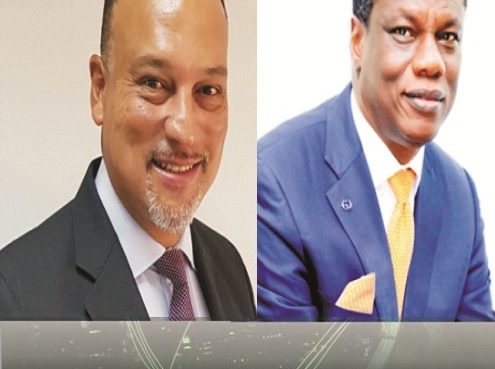Digital media has revolutionised the communication landscape globally and disrupted traditional media’s dominance in all its ramifications by ushering a new vista in citizen engagement.
The world has witnessed unprecedented growth in the adoption of digital media as the global population of internet users hit 5.18 billion, representing 64.6 percent of the world’s population according to data from Statista.
Out of the entire global population, 4.8 billion individuals use social media.
On the other hand, DataReport on “The State of Digital in Nigeria in 2023” reveals that there were 122.5 million internet users in Nigeria by December 2022, representing a penetration rate of 55.4%.
In addition, social media users in Nigeria stand at 31.60 million, or 14.3 percent of the total population. With technological advancement, the number is also projected to grow, as there will be more convergence of social media, artificial intelligence (AI), and virtual reality.
Digital media, according to Wikipedia, is “any communication media that operate in conjunction with various encoded machine-readable data formats. Digital content can be created, viewed, distributed, modified, listened to, and preserved on electronic devices, including digital data storage media and digital broadcasting”.
It refers to the transmission of digital information via screen and/or speaker. It includes websites, online video/audio broadcasts, email, online social platforms, online communities, online forums, blogs, Internet telephony, Web advertising, online education, and a great deal more.
In addition, digital news media includes online journalism, blogging, digital photojournalism, citizen journalism and social media.
There has been a growing concern about ethical issues in the utilisation of digital media space due to its unregulated, instantaneous, and decentralized nature.
This is made possible because anyone with the necessary device and minimal technical knowledge can be a prominent participant in the digital world, proclaim their message to the world, and demand an audience.
In the midst of every innovative disruption, novel possibilities emerge while established customs and practices are threatened and today is no different.
Digital media is transforming to a new genre in journalism that is a blend of professional and citizen-driven journalism where one feeds the other as a news source.
This fusion is noticeable even in developed countries as studies show that journalists monitor social media activity closely and use them in their reporting. Shannon C. McGregor, Assistant Professor, Hussman School of Journalism and Media, at the University of North Carolina, Chapel Hill, postulated that tweets are increasingly incorporated into traditional journalistic coverage of political events and that journalists rely on Twitter to decide which events and voices are newsworthy.
This assertion is also corroborated in an article published in the Nation Newspaper on August 29, 2021 where the author stated that these days in Nigeria, a radio or television programme is incomplete without media outlets’ social media handles, through which they can be followed and reached.
This Ethics is one of the cardinal principles of journalism and the fulcrum of media practice. It is the conscience and integrity quotient of journalism.
Digital media ethics focuses on the unique ethical issues, practices, and standards of digital news media. It addresses how professional journalism should utilise new media to conduct research and publish stories, as well as how to use text or images provided by citizens.
Globally, the nature of journalism is being transformed as professional journalists are contesting the media space with tweeter users, citizen journalists, social media users, and bloggers.
These new entrants raise emerging ethical issues in journalism. Stephen J.A. Ward of the Centre for Journalism Ethics, University of Winconsin-Madison opined: “We are moving towards a mixed news media – a news media citizen and professional journalism across many media platforms. This new mixed news media requires new mixed media ethics–guidelines that apply to amateur and professional whether they blog, tweet, broadcast or write for newspapers.
“The nagging question then is: What implications can ethics hold for a profession that is required to deliver immediate news and analysis, in an era where anyone possessing an internet-enabled device with a modem can act as a publisher? This brings to the fore, the overall ethical controversy between the traditional journalism culture of gatekeeping, balance and objectivity and the online culture of immediacy and non-editorial review.
In relying on citizen journalists for information and in the quest to remain relevant and join the bandwagon of being the first to break the news, the ethical standards of balance, objectivity, facts and verification are being compromised. Through social media platforms such as WhatsApp, Instagram, Twitter, YouTube, Facebook, blogs, mobile phones, and email, news and images circulate around the world with astounding speed.
Speed places newsrooms under pressure to publish stories before they have been adequately checked and verified as to their source and the veracity of alleged facts.
The phenomenon of sensationalism and rumourmongering in journalism is attributed to the economic competitiveness of the industry and the constant demand for 24-hour digital news coverage.
In addition, conventional journalists and media organisations have adopted various social media platforms such as a means of connecting with their audience and sharing their perspectives and viewpoints.
Consequently, the absence of substantial reporting or analysis leads to a disregard for journalistic integrity.
The internet contains vast amounts of information, a significant portion of which lacks proper evaluation for both accuracy and relevance. These grave ethical lapses call for concern as a media that thrives on speed has the potential to cause significant damage to society.
On a broader perspective, there is this ethical issue of who is a journalist and what journalism in the digital media ecosystem is. The democratisation of media technology muddles the identity of journalists and the definition of journalism.
In the traditional media, journalists were a clearly defined set of professionals who wrote for mainstream media.
It was easy to identify “gentlemen of the press.” But today, citizens without formal training in journalism write in ways that fit the definition of a journalist as a person who frequently writes for the public or audience about public issues.
In Nigeria, there is this debate as to whether those who write for popular blogs such as Linda Ikeji Blog, Gistlover, and Zikolo, as well as social news sites such as Gamji.com and Nigeriavillagesquare.com, Pulse, or social media sites such as Nairaland, allAfrica, naNAIJA.com, and onlineNigeria journalists? A lack of clarity regarding who constitutes a journalist results in foundational ethical conflicts regarding who practices journalism and the question of what journalism is in this context.
It is becoming difficult and sometimes unclear to determine where the term “journalism” begins and ends.
The ethical challenge is the articulation of guidelines that are consistent with the ethical principles of accuracy, verification, and transparency for dealing with rumours and corrections in digital media.
A related problem created by new media is how to handle errors and corrections when news updates, reports and commentaries are continually updated via live feeds and blogging posts or TV scrolls.
Live coverage of events such as breaking news, natural disasters, elections, handover, and sports are becoming increasingly popular among journalists in Nigeria. Errors, including misspellings and factual inaccuracies, are inevitable when working at this urgency, speed and pace. Occasionally, people retweet, share, or broadcast these factual errors before they are corrected and the resulting ethical damage can be severe.
It is a fact that unregulated digital media thrives in anonymous and faceless writing. However, the mainstream media require content providers to be identified.
Journalists are cautioned by codes of conventional media ethics to use anonymous sources sparingly and only under certain conditions.
The question of when anonymity is ethically permissible is therefore yet another ethical issue, whether it is inconsistent for the media to enforce various anonymity rules for different media platforms. What should the ethical guidelines for offline and online anonymity be? Supporters of anonymity claim that it allows unfettered freedom of speech and sometimes aids in exposing corruption and official misconduct.
Impartiality is a fundamental principle of mainstream journalism. But, this principle contradicts the tenets of the new media, which encourages people to freely and equivocally express their opinions and share their thoughts.
Many bloggers and online journalists perceive themselves to be opinion or partisan journalists/activists for causes and political movements and take pride in expressing their opinions and positions.
The majority of them reject the concept of neutral or objective analysis.
The ethical challenge redefining what independent journalism in the public interest entails for a media in which numerous new forms of journalism are emerging and fundamental principles are being questioned.
Journalists should be guided by the principle of fairness and avoid news stories that are likely to generate conflicts of interest or diminish the dignity of others. When collecting news sources, journalists should apply research ethics of balance, confidentiality, respect for opinions, and avoidance of sensational content.
In addition, journalists should not hide under the cover of technology to distort the truth or reality, manipulate facts, or sensationalise events.
In the midst of plethora of unfettered information sources online, plagiarism in digital media has become widespread.
Journalists have been accused of copying stories from less popular blogs and publishing them in mainstream media as their own.
Journalists are expected to ensure that their stories are original and not plagiarized. This is related to the fact that journalists are sometimes implicated in copyright violations. However, copyright infringement is a legal issue as well as an ethical one.
On the flip side, the proliferation of new image modification technologies for both photographs and videos raises new ethical concerns too.
In Nigeria where fake news, disinformation and hate speech thrive, the manipulation of images is a major ethical issue and prone to fraudulent practices. Citizens and professional journalists have access to new and simple methods for capturing and transmitting images.
These images can be altered and manipulated using new technologies.
This convergence of ease of capture, ease of transmission, and ease of manipulation call into question the conventional photojournalism principles that were developed for non-digital image and video capture and transmission.
One concern is whether newsrooms can rely on images readily obtained by citizens and citizen journalists. Who is the sender, and how can we be sure that this photograph represents the event in question? Another issue is whether a journalist or a member of the public used technology to alter the photograph, such as to add or remove an object.
As a way to manage digital media ethical issues, some scholars have advocated for layered journalism, which combines various forms of journalism and different types of journalists to create a multi-media offering of news and analysis written in a professional style combined with citizen journalism and interactive chat.
Stephen J.A. Ward recommended that the newsroom be layered vertically and horizontally, with different editors reviewing and editing texts, videos, photographs, and audio from various sources.
As digital media continue to evolve, new ethical issues will continue to arise.
However, the mainstream media must not in the cause of joining the digital bandwagon, compromise the ethical principles of Aristotle’s ‘Golden Mean’.
Professional journalists must remain the check and standard for measuring journalism practice and not for survival strategies and reasons revert to pre-19th century journalism that lacks the social responsibility norm.
The media as the fourth estate of the realm must continue to be alive to its ethical responsibility to society by upholding ethical principles while adapting and adopting digital technology, which has become a major component of journalism.
Source: independent










